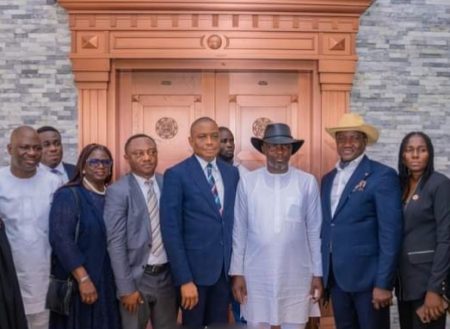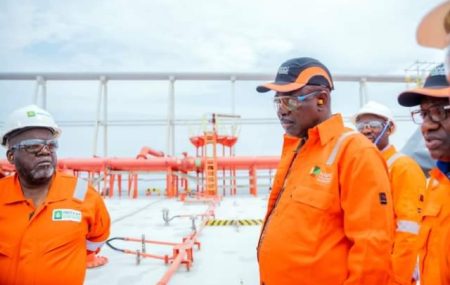15 August, Sweetcrude, Abuja – Deputy Speaker of the House of Representatives, Emeka Ihedioha, says the National Assembly will monitor the restoration of the devastated environment of Ogoniland and other communities affected by oil spills in the Niger Delta.
The lawmaker spoke as the Ogonis called on the Federal Government to immediately implement the key recommendations of the United Nations Environment Programme (UNEP) report, which outlined the disastrous effects of oil pollution in Ogoniland.
Ihedioha, while acknowledging the submission of the UNEP report on the Ogoni oil spill as a first step in redressing the despoliation of affected communities, cautioned against attempts to pass the buck by concerned corporate operators, stating that “all those involved must take full responsibility for the consequences of exploration activities as it is the case in developed countries where some of them are headquartered.”
Recalling the rapid global response, which greeted the Gulf of Mexico oil spill in the United States last year, Ihedioha expressed hope that the Federal Government would waste no time in driving an implementation process that would address the grave environmental issues raised in Ogoniland and other areas of the Niger Delta.
The deputy speaker expressed the unwavering commitment and focused determination of the House as representatives of the people of Nigeria, to ensure that the principles of international best practices and values of good corporate governance are brought to bear in the oil and gas industry in the overall interest of host communities and the larger Nigerian nation.
“In this regard, the passage of the Petroleum Industry Bill (PIB) will be given expeditious attention when the House resumes from its recess, among other results-driven measures that would be taken to ensure that corporate actors and relevant government departments and agencies in the oil and gas industry do not shirk in their responsibilities to reclaim and protect the environment in which they operate and as well as improve the lives and living conditions of the inhabitants,” he said.
The Ogonis have set up a technical committee to do a detailed analysis and review of the UNEP report with a view to highlighting obvious gaps, especially the public health implications, and making recommendations of possible steps to be taken by the Ogoni people, but not limited to legal action in appropriate jurisdictions.
The decision was reached at a special Ogoni congress called under the aegis of Movement for the Survival of the Ogoni People (MOSOP) to review recent developments in their struggle for justice, especially the developments in the case brought by the Bodo Community in the United Kingdom Courts against Shell, as well as the UNEP report of the environmental assessment of the area.
The UNEP report, which was submitted to President Goodluck Jonathan penultimate Thursday, revealed large scale of contamination of drinking water, which has exposed communities to serious health risks. For instance, at Nisisioken Ogale, the report disclosed that families are drinking water from wells that are contaminated with benzene – a known carcinogen – at levels over 900 times above World Health Organisation guidelines. The site is close to a Nigerian National Petroleum Corporation (NNPC) pipeline.
In a statement, which was endorsed by the MOSOP President, Ledum Mitee, the congress which was attended by over 5,000 Ogoni people, noted that the recent spill in the Gulf of Mexico was cleaned within a record time and not within 20 to 30 years as recommended in the case of Ogoni by UNEP.




